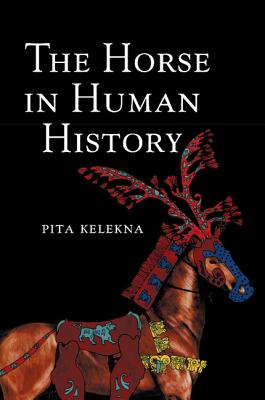The Horse in Human History

The Horse in Human History
The horse is surely the "aristocrat" of animals domesticated by man. This book documents the origins of horse domestication on the Pontic-Caspian steppes some 6,000 years ago and the consequent migration of equestrian tribes across Eurasia to the borders of sedentary states. Horse-chariotry and cavalry in effect changed the nature of warfare in the civilizations of the Middle East, India, and China. But, beyond the battlefield, horsepower also afforded great advances in transport, agriculture, industry, and science. Rapidity of horse communications forged far-flung equestrian empires, where language, law, weights, measures, and writing systems were standardized and revolutionary technologies and ideas were disseminated across continents. Always recognizing this dual character of horsepower - both destructive and constructive - the politico-military and economic importance of the horse is discussed in the rise of Hittite, Achaemenid, Chinese, Greco-Roman, Arab, Mongol, and Turkic states. Following Columbian contact, Old and New World cultures are contrastively evaluated in terms of presence or absence of the horse. And Spanish conquest of the horseless Americas is seen as the model for subsequent European equestrian colonization of horseless territories around the planet.
PRP: 247.94 Lei
Acesta este Pretul Recomandat de Producator. Pretul de vanzare al produsului este afisat mai jos.
223.15Lei
223.15Lei
247.94 LeiLivrare in 2-4 saptamani
Descrierea produsului
The horse is surely the "aristocrat" of animals domesticated by man. This book documents the origins of horse domestication on the Pontic-Caspian steppes some 6,000 years ago and the consequent migration of equestrian tribes across Eurasia to the borders of sedentary states. Horse-chariotry and cavalry in effect changed the nature of warfare in the civilizations of the Middle East, India, and China. But, beyond the battlefield, horsepower also afforded great advances in transport, agriculture, industry, and science. Rapidity of horse communications forged far-flung equestrian empires, where language, law, weights, measures, and writing systems were standardized and revolutionary technologies and ideas were disseminated across continents. Always recognizing this dual character of horsepower - both destructive and constructive - the politico-military and economic importance of the horse is discussed in the rise of Hittite, Achaemenid, Chinese, Greco-Roman, Arab, Mongol, and Turkic states. Following Columbian contact, Old and New World cultures are contrastively evaluated in terms of presence or absence of the horse. And Spanish conquest of the horseless Americas is seen as the model for subsequent European equestrian colonization of horseless territories around the planet.
Detaliile produsului








